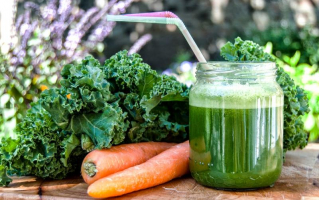Top 6 Health Benefits of Kakadu Plum
The billygoat or gubinge plum, also known as the Kakadu plum (Terminalia ferdinandiana), is a tiny fruit that grows in open Eucalyptus woodlands in Northern ... read more...Australia. It is fibrous and tastes acidic and harsh. Kakadu plums were used in traditional medicine to cure headaches, the flu, and colds. They were also applied to the limbs as an antibacterial or calming balm. They have gained recognition for their excellent nutritional content more recently. The best Kakadu plum health advantages are listed below.
-
Kakadu plums are low in calories and rich in nutrients, providing a quality source of fiber, vitamins, and minerals. Here is the nutritional breakdown of 3.5 ounces (100 grams) of the edible part of the fruit:
- Calories: 59
- Protein: 0.8 grams
- Carbs: 17.2 grams
- Dietary fiber: 7.1 grams
- Fat: 0.5 grams
- Sodium: 13 mg
- Vitamin C: 3,230% of the Daily Value (DV)
- Copper: 100% of the DV
- Iron: 13.3% of the DV
It's especially abundant in vitamin C, a powerful antioxidant that protects your body from free radicals, which are reactive molecules. It's also a good source of copper, which is needed to make red blood cells, bones, connective tissue, and essential enzymes, as well as to maintain appropriate immune system function and embryonic development. Kakadu plums are also high in iron, which is necessary for oxygen transmission throughout the body and red blood cell synthesis.
They also include a lot of dietary fiber, which supports gut health and blood sugar regulation while warding off constipation, colon cancer, and irritable bowel syndrome (IBS). The last minerals needed for optimal health—thiamine, riboflavin, magnesium, zinc, and calcium—are also present in lower amounts in Kakadu plums.
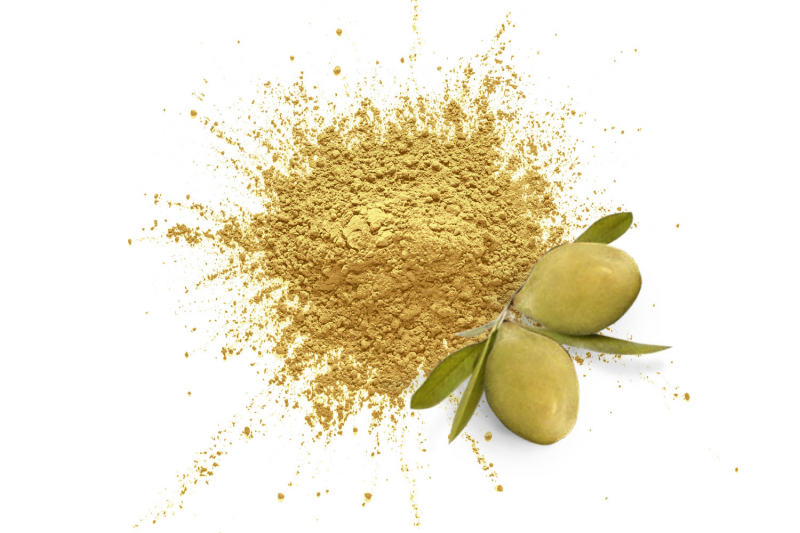
High in nutritious 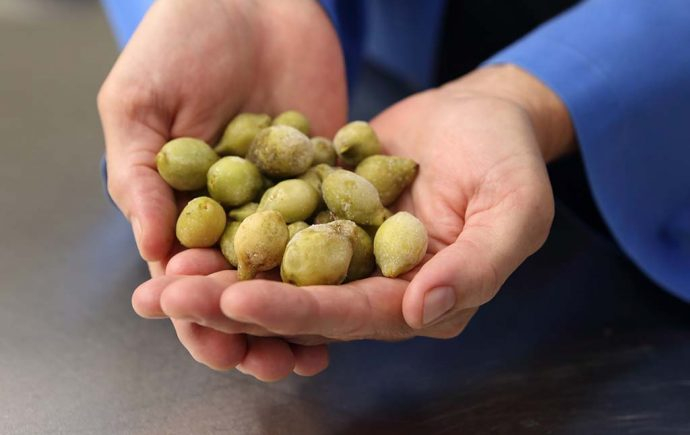
High in nutritious -
Kakadu plums contain the greatest naturally reported level of vitamin C of any food on the planet. In fact, 3.5 ounces (100 grams) of the fruit meets more than 3,000% of your daily requirements. For comparison, the same amount of oranges contains 59.1% of the DV, whereas the same amount of blueberries contains only 10.8% of the DV. Vitamin C is a potent antioxidant that strengthens the immune system, lowers oxidative stress, and may aid in collagen formation, iron absorption, heart health, memory, and cognition. In people with high blood pressure, for example, a 500-mg dose of vitamin C reduced systolic blood pressure (the top number) and diastolic blood pressure by 4.85 mm Hg.
A review of 15 research also found that those with high vitamin C intake had a 16% lower chance of developing heart disease than those with low vitamin C intake. Consuming foods strong in vitamin C can also help iron from plants be absorbed. In fact, increasing the vitamin C content of a meal by 100 mg can increase iron absorption by 67%. People who are vegetarians, vegans, and those who are iron deficient could find this to be especially helpful. Kakadu plums lose a significant amount of their vitamin C after being picked, thus the fruit is typically frozen before being shipped and sold. The amount of vitamin C in these fruits is also diminished when they are cooked.
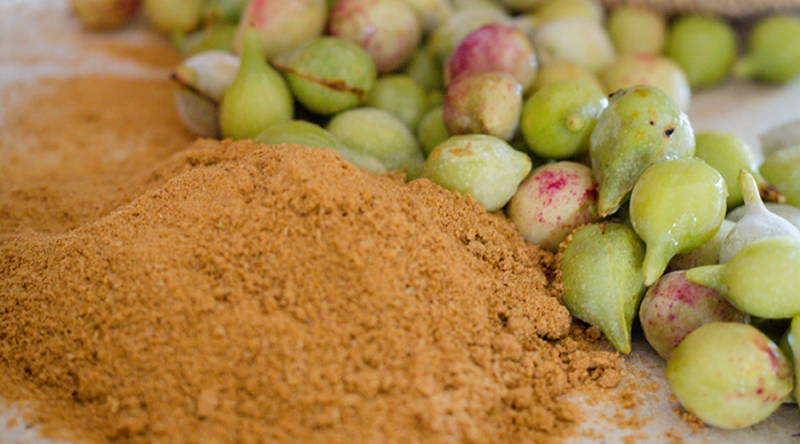
Richest food source of vitamin C 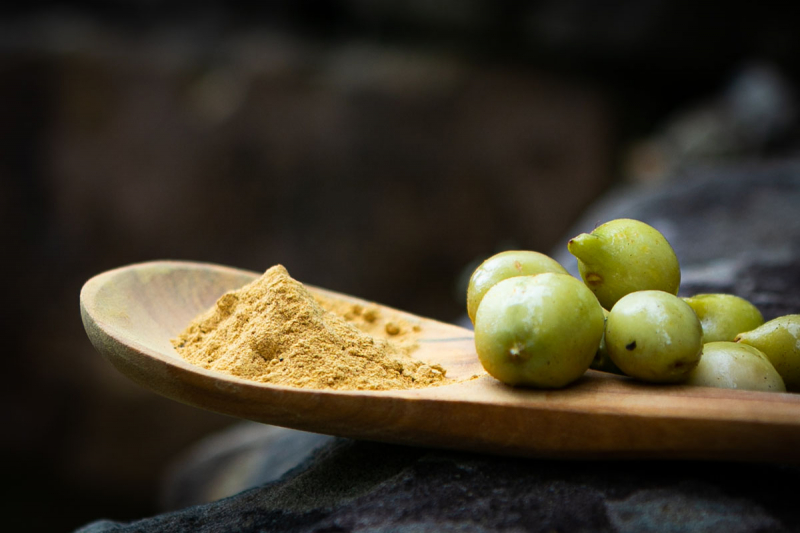
Richest food source of vitamin C -
Kakadu plums are high in ellagic acid, a type of organic acid. Ellagic acid is a polyphenol that is well-known for its antioxidant properties. Strawberries, boysenberries, walnuts, and almonds are all high in them. It has been associated with a wide range of health advantages, including anticancer, anti-inflammatory, antibacterial, and prebiotic properties. In vitro and animal studies, for example, have demonstrated that ellagic acid can inhibit tumor development and promote tumor cell death in a number of malignancies. The more human study is needed, however, to fully understand the health benefits of dietary ellagic acid.
There aren't any guidelines for daily ellagic acid intake at the moment. According to some reports, the typical daily intake ranges between 4.9 mg and 12 mg. Per 3.5 ounces (100 grams) of dried Kakadu plums, there are around 228-14,020 mg of ellagic acid. The tree, climate, soil, ripeness, and storage conditions all influence the precise yield.
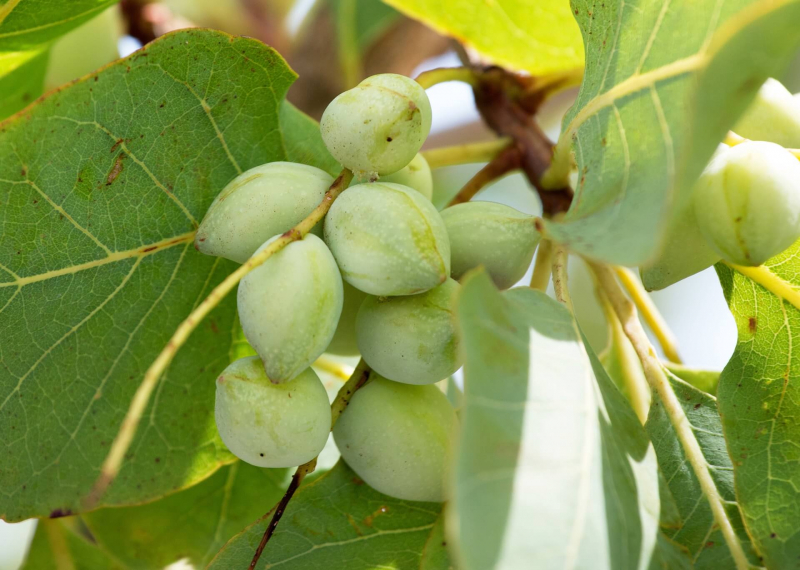
Good source of ellagic acid 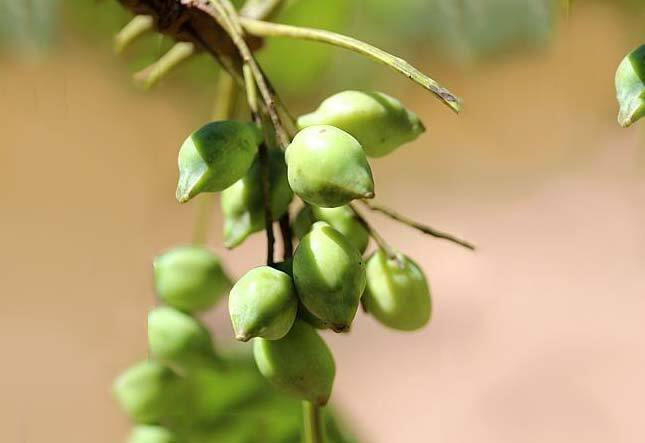
Good source of ellagic acid -
Kakadu plums have a high antioxidant content. They have 6 times the polyphenol content and 13.3 times the antioxidant activity of blueberries. Antioxidants aid in the neutralization of unstable chemicals known as free radicals. Excessive amounts of these chemicals can be harmful to your health and create oxidative stress. Free radicals form naturally, but poor diet and environmental pollutants such as air pollution and cigarette smoke can increase their quantities.
Furthermore, research has connected free radicals to health issues such as cancer, brain degeneration, diabetes, autoimmune diseases, and heart and kidney disease. Antioxidants can bind to free radicals and protect your cells from their damaging effects. The high antioxidant content and activity of Kakadu plums mean they may help prevent and fight disease. Still, more research is needed to determine the effects of the fruit itself.
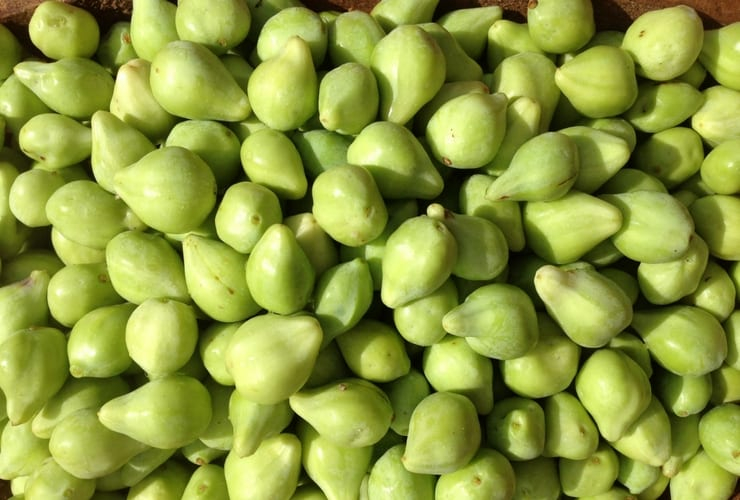
Great source of antioxidants 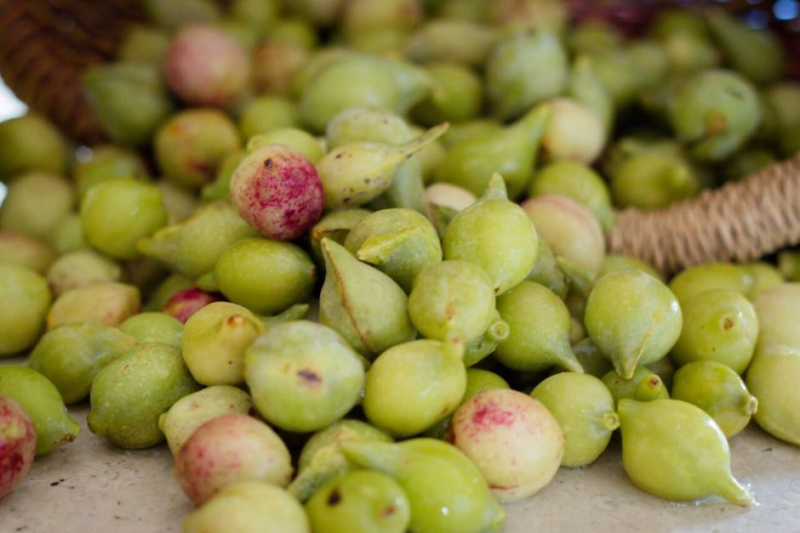
Great source of antioxidants -
The minerals in Kakadu plum may aid in the prevention and treatment of cancer. Extracts from the fruit have anti-inflammatory effects that may help prevent some types of cancer, according to test-tube research. In test-tube experiments, these extracts also stimulate cancer cell death, which is an essential immunological defense against cancer and cell mutations. Furthermore, the fruits are abundant in ellagic and gallic acids, which have been demonstrated in test-tube tests to be harmful to cancer cells.
Kakadu plums could offer defense against inflammatory conditions like rheumatoid arthritis. Certain infections have the potential to cause rheumatoid arthritis. Test-tube research shows that the fruit and leaf extract from the Kakadu endemic tree inhibits the germs that cause these diseases. The high tannin content of this fruit, which is derived from ellagitannins, a type of ellagic acid, is probably what causes this effect.
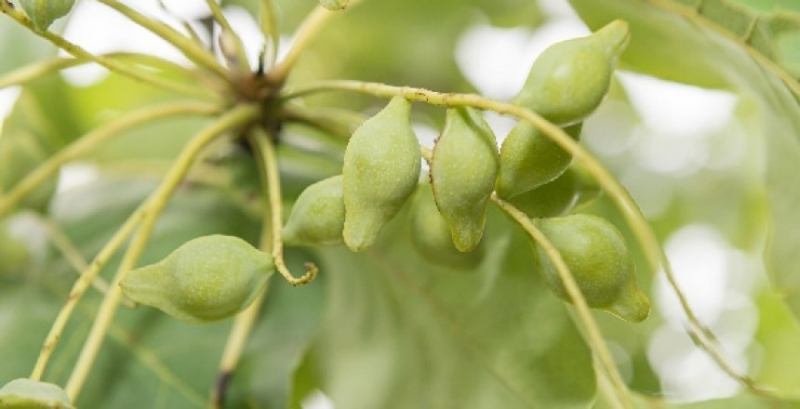
May have cancer-fighting properties and protect against inflammatory diseases 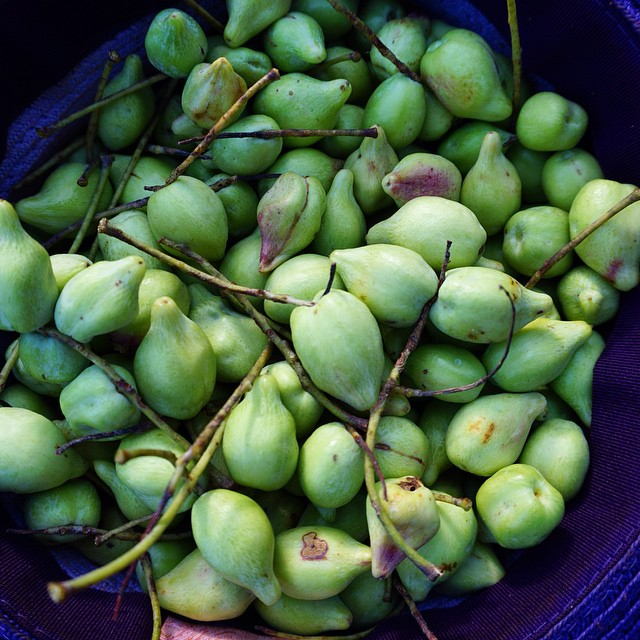
May have cancer-fighting properties and protect against inflammatory diseases -
Kakadu plums have natural antibacterial qualities that could help preserve goods and prevent foodborne infections. Their extracts, seeds, bark, and leaves have been demonstrated in studies to suppress the growth of common food pathogens such as Listeria monocytogenes.
As a result, food preservation solutions based on Kakadu plum extract could be a natural and safe alternative to synthetic approaches. Furthermore, the fruit's antibacterial, antioxidant, and anti-inflammatory characteristics have led to its inclusion in various skin care and acne-fighting products. However, there is insufficient scientific data to support the benefits of using Kakadu plum extract topically.
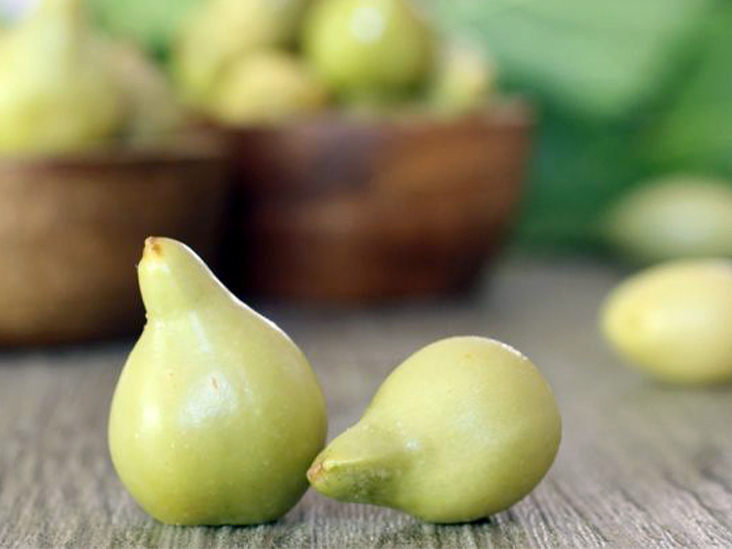
May offer natural antibacterial properties 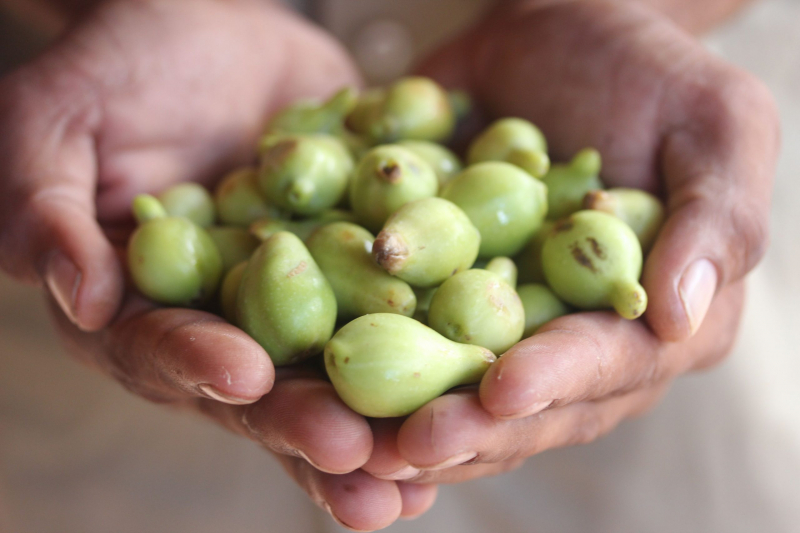
May offer natural antibacterial properties



















